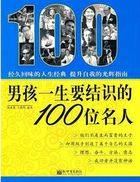Gradations of Consumers' Demand1.When a trader or a manufacturer buys anything to be used in production, or be sold again, his demand is based on his anticipations of the profits which he can derive from it.These profits depend at any time on speculative risks and on other causes, which will need to be considered later on.But in the long run the price which a trader or manufacturer can afford to pay for a thing depends on the prices which consumers will pay for it, or for the things made by aid of it.The ultimate regulator of all demands is therefore consumers' demand.And it is with that almost exclusively that we shall be concerned in the present Book.
Utility is taken to be correlative to Desire or Want.It has been already argued that desires cannot be measured directly, but only indirectly by the outward phenomena to which they give rise:
and that in those cases with which economics is chiefly concerned the measure is found in the price which a person is willing to pay for the fulfilment or satisfaction of his desire.He may have desires and aspirations which are not consciously set for any satisfaction: but for the present we are concerned chiefly with those which do so aim; and we assume that the resulting satisfaction corresponds in general fairly well to that which was anticipated when the purchase was made.(1*)There is an endless variety of wants, but there is a limit to each separate want.This familiar and fundamental tendency of human nature may be stated in the law of satiable wants or of diminishing utility thus:-The total utility of a thing to anyone (that is, the total pleasure or other benefit it yields him)increases with every increase in his stock of it, but not as fast as his stock increases.If his stock of it increases at a uniform rate the benefit derived from it increases at a diminishing rate.
In other words, the additional benefit which a person derives from a given increase of his stock of a thing, diminishes with every increase in the stock that he already has.
That part of the thing which he is only just induced to purchase may be called his marginal purchase, because he is on the margin of doubt whether it is worth his while to incur the outlay required to obtain it.And the utility of his marginal purchase may be called the marginal utility of the thing to him.
Or, if instead of buying it, he makes the thing himself, then its marginal utility is the utility of that part which he thinks it only just worth his while to make.And thus the law just given may be worded:-The marginal utility of a thing to anyone diminishes with every increase in the amount of it he already has.(2*)There is however an implicit condition in this law which should be made clear.It is that we do not suppose time to be allowed for any alteration in the character or tastes of the man himself.It is therefore no exception to the law that the more good music a man hears, the stronger is his taste for it likely to become; that avarice and ambition are often insatiable; or that the virtue of cleanliness and the vice of drunkenness alike grow on what they feed upon.For in such cases our observations range over some period of time; and the man is not the same at the beginning as at the end of it.If we take a man as he is, without allowing time for any change in his character, the marginal utility of a thing to him diminishes steadily with every increase in his supply of it.(3*)2.Now let us translate this law of diminishing utility into terms of price.Let us take an illustration from the case of a commodity such as tea, which is in constant demand and which can be purchased in small quantities.Suppose, for instance, that tea of a certain quality is to be had at 2s.per lb.A person might be willing to give 10s.for a single pound once a year rather than go without it altogether; while if he could have any amount of it for nothing he would perhaps not care to use more than 30lbs.in the year.But as it is, he buys perhaps 10 lbs.in the year; that is to say, the difference between the satisfaction which he gets from buying 9 lbs.and I 0 lbs.is enough for him to be willing to pay 2s.for it: while the fact that he does not buy an eleventh pound, shows that he does not think that it would be worth an extra 2s.to him.That is, 2s.a pound measures the utility to him of the tea which lies at the margin or terminus or end of his purchases; it measures the marginal utility to him.If the price which he is just willing to pay for any pound be called his demand price, then 2s.is his marginal demand price.And our law may be worded:-The larger the amount of a thing that a person has the less, other things being equal (i.e.the purchasing power of money, and the amount of money at his command being equal), will be the price which he will pay for a little more of it: or in other words his marginal demand price for it diminishes.
His demand becomes efficient, only when the price which he is willing to offer reaches that at which others are willing to sell.
This last sentence reminds us that we have as yet taken no account of changes in the marginal utility of money, or general purchasing power.At one and the same time, a person's material resources being unchanged, the marginal utility of money to him is a fixed quantity, so that the prices he is just willing to pay for two commodities are to one another in the same ratio as the utility of those two commodities.















